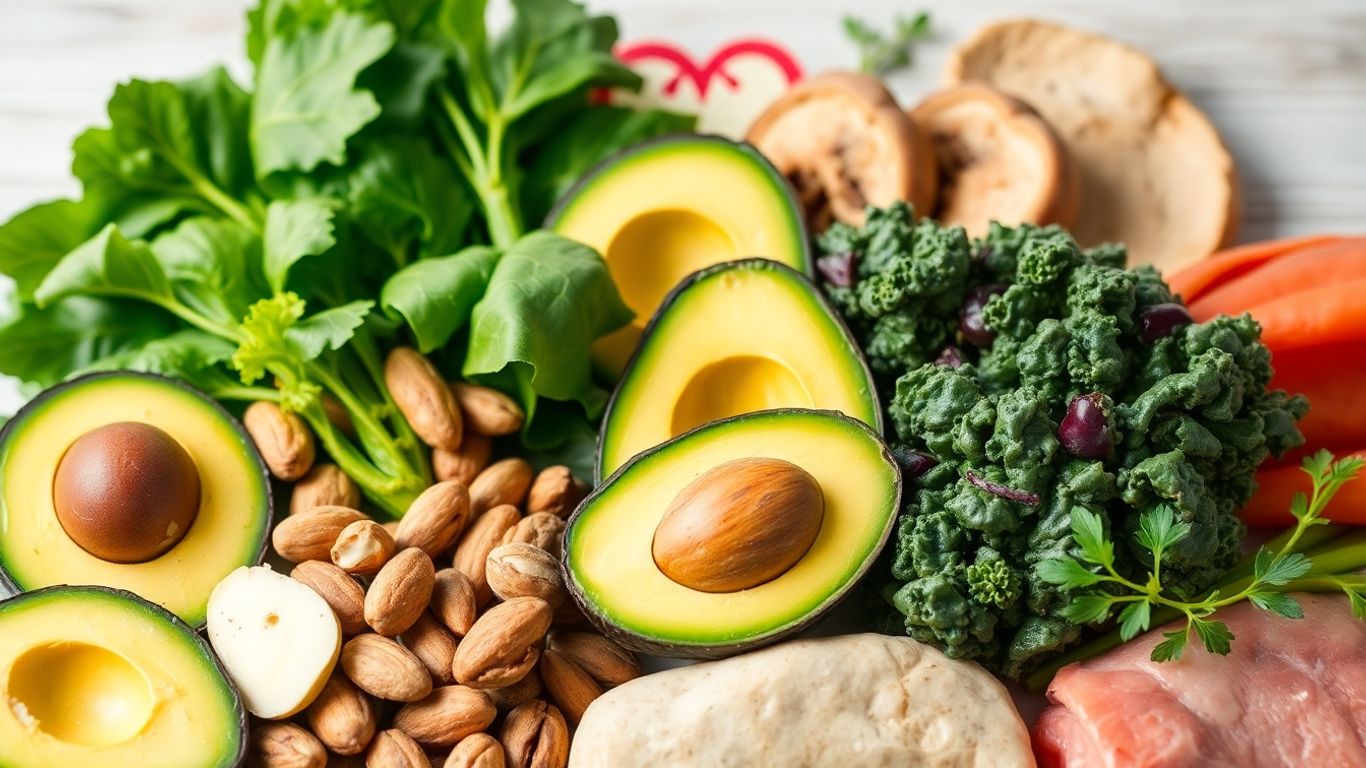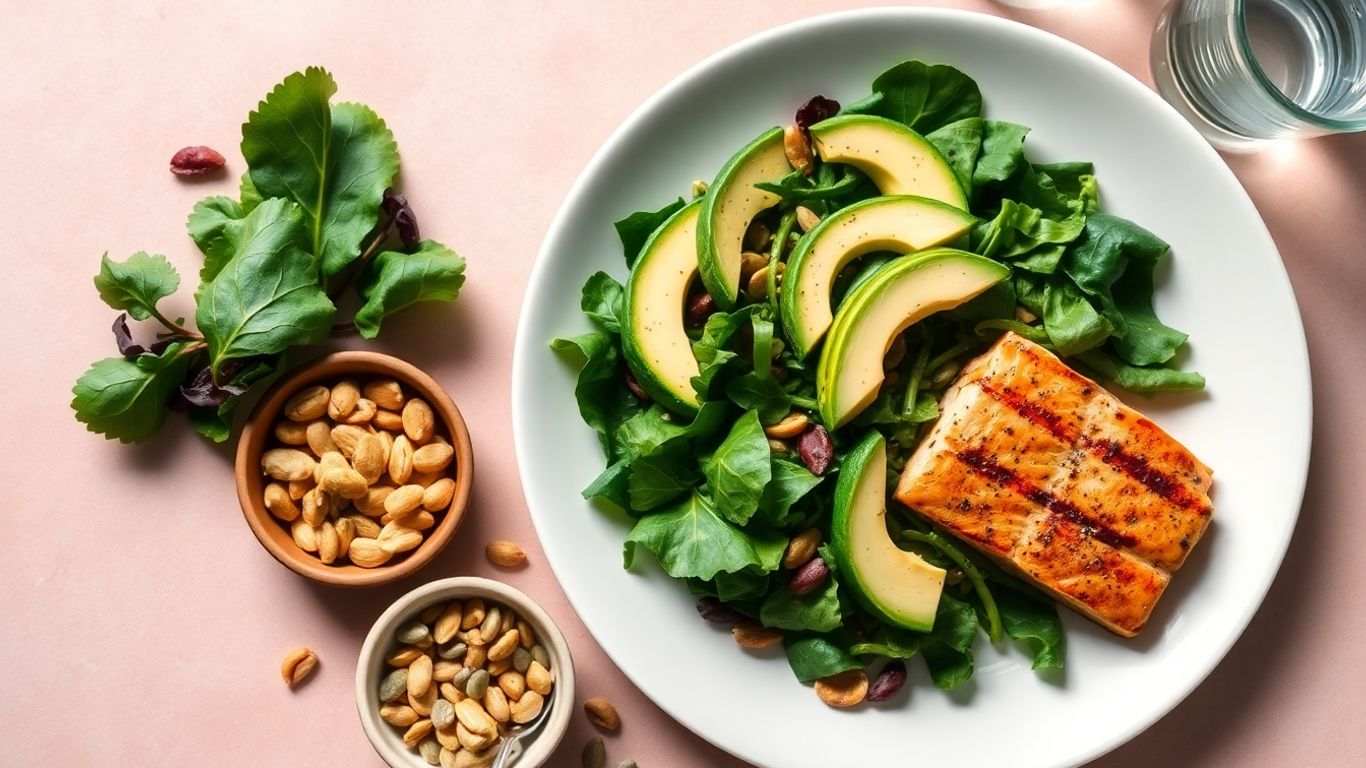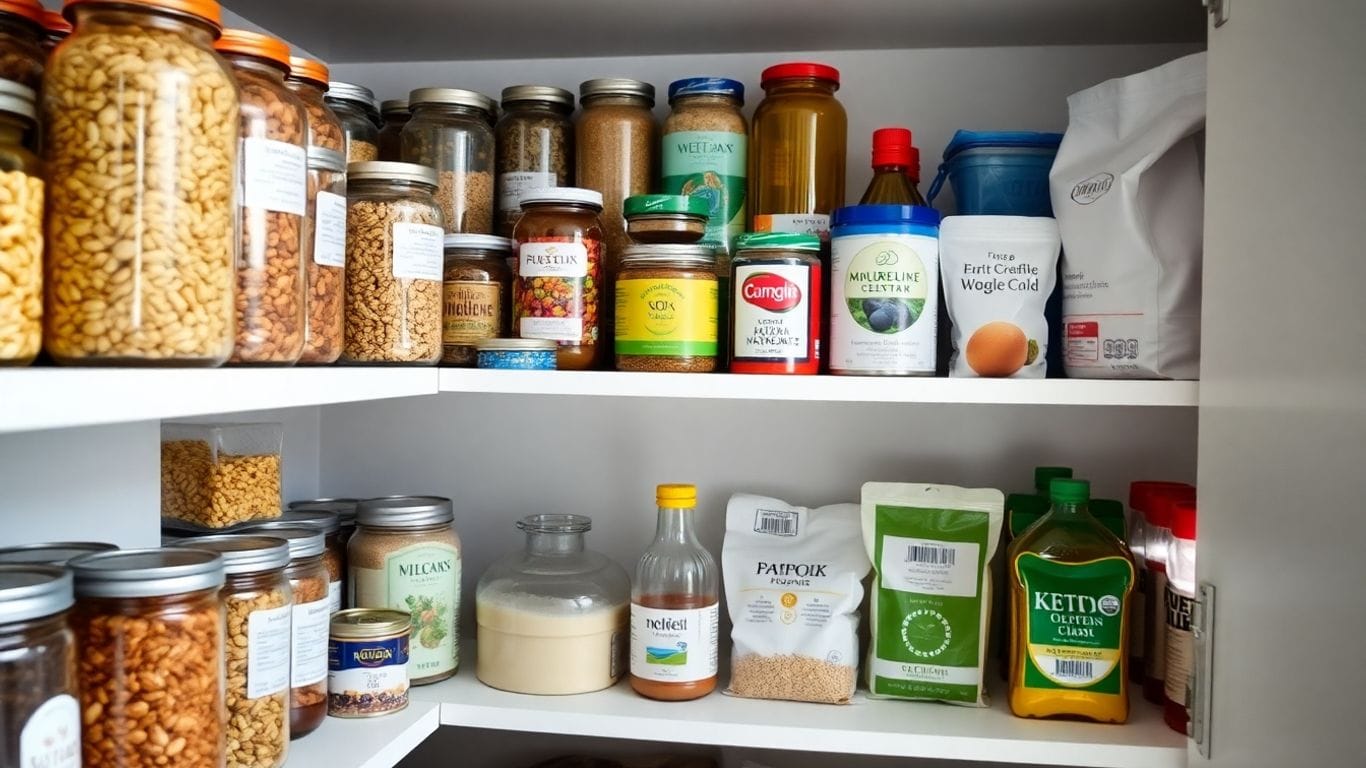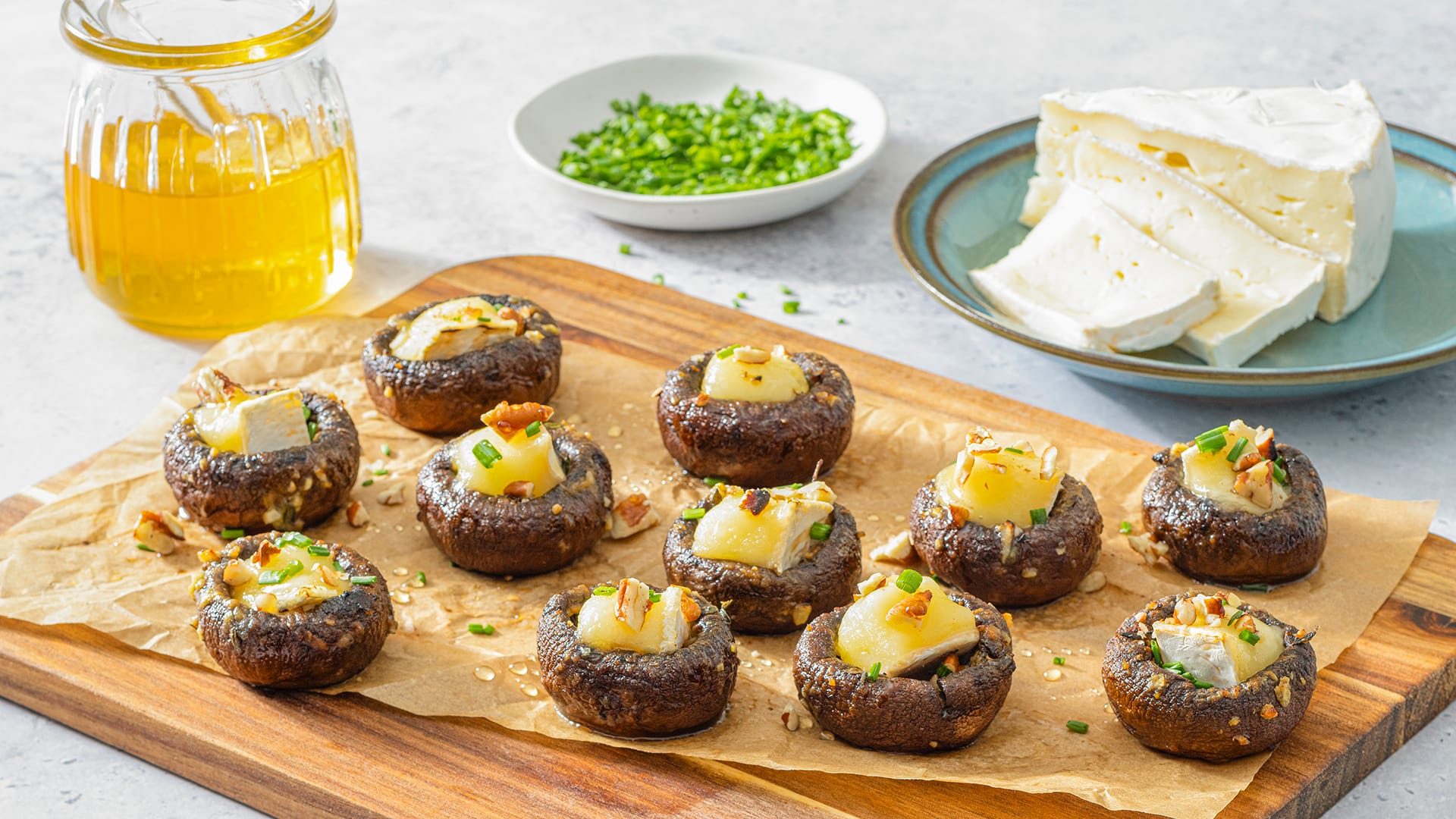Thinking about your diet and how it affects your cholesterol can feel like a puzzle. You hear a lot of different things, especially when it comes to low carb eating. Does cutting carbs help or hurt your heart? We’re going to break down what we know about low carb diets, cholesterol levels, and how what you eat plays a role in your overall health. It’s not always as simple as you might think, and understanding the details can make a big difference.
Key Takeaways
- While dietary cholesterol from foods like animal products has less impact than previously thought, saturated and trans fats are the main dietary culprits that can raise ‘bad’ LDL cholesterol levels. Limiting these unhealthy fats is key.
- Many studies show that a low carb diet can actually improve cholesterol levels, often leading to an increase in ‘good’ HDL cholesterol and a decrease in total and LDL cholesterol, along with lower triglycerides.
- The ketogenic diet, a very low carb approach, can have varied effects on cholesterol. While it often improves triglycerides and HDL, some individuals, particularly leaner ones, might see an increase in LDL cholesterol.
- When considering a low carb diet, focusing on the quality of fats is important. Prioritizing healthy fats like those in avocados, nuts, and olive oil, while limiting saturated fats, is recommended for heart health.
- Factors beyond diet, such as genetics, age, and weight loss, significantly influence cholesterol levels. If diet changes alone don’t improve your numbers, it’s important to consult with a healthcare provider.
Understanding Cholesterol and Diet’s Role
So, let’s talk about cholesterol. It’s this waxy stuff your body actually needs to do its thing, and your liver makes plenty of it. You don’t really need to get it from food, and it’s not like a vitamin you have to have. The cholesterol you eat is just extra, kind of like adding more sand to an already full beach. But here’s the thing: what you eat only influences about 20% to 30% of the cholesterol floating around in your blood. Some foods can definitely push your ‘bad’ cholesterol (LDL) up, while others can help bring it down. Knowing which foods to pick and which to skip can really help manage your cholesterol and lower your chances of heart problems.
Dietary Cholesterol vs. Blood Cholesterol
When we talk about cholesterol, it’s easy to get confused between what you eat (dietary cholesterol) and what’s actually in your blood (blood cholesterol). Most of the cholesterol in your blood is made by your liver. The cholesterol you get from food, mainly from animal products like meat, cheese, and dairy, is called dietary cholesterol. While it used to be thought that dietary cholesterol was the main driver of blood cholesterol, current research points more towards other factors. It turns out that the amount of cholesterol you consume from food has a smaller impact than we once believed for most people.
The Impact of Saturated and Trans Fats
Instead of focusing too much on dietary cholesterol itself, the real culprits behind higher ‘bad’ cholesterol (LDL) levels are saturated and trans fats. These unhealthy fats are found in many of the same foods that are also high in dietary cholesterol. Cutting back on these specific types of fats can make a significant difference in your blood cholesterol numbers. It’s about choosing the type of fat you consume more than the cholesterol content alone.
Here’s a quick look at what to limit:
- Saturated Fats: Often found in red meat, butter, full-fat dairy products, and some tropical oils.
- Trans Fats: Commonly found in processed baked goods, fried foods, and some margarines. Many countries have banned or are phasing out artificial trans fats.
How Diet Influences Cholesterol Levels
Your diet plays a role, but it’s not the only player. Think of it like this: your body is a complex system, and food is just one input. While you can’t control everything, making smart food choices can help. For instance, adding more soluble fiber to your diet is a great strategy. Soluble fiber can bind to cholesterol in your digestive system and help remove it from your body. Eating balanced meals that include plenty of fruits, vegetables, and whole grains can also support healthy cholesterol levels. It’s about creating a pattern of eating that supports your body’s natural processes, rather than working against them. Remember, changes take time, so be patient with your body as you adjust your eating habits.
Making informed dietary choices is a powerful tool for managing your cholesterol. While genetics and other lifestyle factors play a part, what you put on your plate can significantly influence your blood lipid profile. Focusing on reducing unhealthy fats and increasing beneficial components like fiber is a solid approach to supporting your heart health.
Low Carb Diet and Cholesterol Levels

So, you’re curious about how cutting carbs might affect your cholesterol, right? It’s a common question, and honestly, the picture isn’t always as simple as you might think. For a long time, the general advice was to cut fat, especially saturated fat, to manage cholesterol. But lately, low-carb diets have become really popular, and people are wondering what happens to their cholesterol numbers when they cut out bread, pasta, and sugary treats.
How Does Low Carb Diet Affect Cholesterol?
When you reduce carbohydrates, your body starts looking for other fuel sources. Often, this means it taps into fat stores. This shift can lead to some interesting changes in your blood lipids. Most studies actually show that going low-carb can be good for your cholesterol profile. We’re talking about an increase in HDL, which is the ‘good’ cholesterol, and often a decrease in total and LDL cholesterol, the ‘bad’ kind. Triglycerides, another type of fat in your blood that’s linked to heart disease, tend to drop significantly on low-carb plans. It seems like the body adapts by becoming more efficient at processing fats.
Low Carb Diet Benefits for Cholesterol
The benefits often seen with low-carb eating for cholesterol include:
- Higher HDL Cholesterol: This is the ‘good’ cholesterol that helps clear out LDL. Many people see a nice bump in their HDL levels.
- Lower Triglycerides: This is a big one. Triglycerides are fats in your blood, and high levels are a risk factor for heart issues. Low-carb diets are really good at bringing these down.
- Improved Total and LDL Cholesterol: While there can be variations, most studies show a reduction or at least no negative change in total and LDL cholesterol.
- Better Cholesterol Ratios: The ratio of total cholesterol to HDL cholesterol often improves, which is a good indicator of heart health.
Low Carb Diets Bad or Good for Heart?
This is where things get a bit nuanced. For most people, a low-carb diet appears to be beneficial for heart health markers, especially when it comes to triglycerides and HDL. However, there’s a specific group of people, often leaner individuals, who might see their LDL cholesterol go up. This phenomenon is sometimes called ‘lean mass hyper-responder’.
The impact of a low-carb diet on cholesterol isn’t a one-size-fits-all situation. While many see positive changes, understanding your own body’s response is key. Factors like genetics and your starting weight can play a role in how your lipids react.
So, are low-carb diets bad for the heart? Generally, no. The overall lipid profile improvement, particularly the drop in triglycerides and rise in HDL, is usually seen as a positive sign. But if you’re in that leaner group and your LDL is climbing, it’s something to discuss with your doctor. They might consider it a sign of improved lipoprotein particle size, which is less concerning, or they might suggest other strategies.
Ketogenic Diet Cholesterol Effects
The ketogenic diet, often called the keto diet, is a very low-carbohydrate, high-fat eating plan. The idea is to shift your body into a state called ketosis, where it burns fat for energy instead of carbs. While many people turn to keto for weight loss, its impact on cholesterol levels is a topic that gets a lot of attention and sometimes confusion.
Ketogenic Diet Cholesterol Effects on LDL and HDL
When you cut carbs drastically, your body starts breaking down fat for fuel, producing ketones. This process can lead to some interesting changes in your blood lipids. For many, the keto diet can lead to an increase in HDL, often called the ‘good’ cholesterol. This is generally seen as a positive sign for heart health. However, the effect on LDL, the ‘bad’ cholesterol, is more varied. Some studies show an increase in LDL, particularly in individuals who are not overweight. This has led to discussions about ‘lean mass hyper-responders,’ a group that might see a significant rise in LDL on a keto diet.
Keto Diet Raise Cholesterol Risk?
This is where things get a bit nuanced. For some people, especially those with existing metabolic issues, the initial rise in LDL and triglycerides on keto might be concerning. However, research suggests that these levels can stabilize over time, and the long-term implications of these short-term fluctuations are still being studied. It’s important to remember that not all LDL is the same; particle size and density can also play a role, and keto might influence these positively for some. The key takeaway is that individual responses can differ greatly.
Optimal Fat Intake in Ketogenic Diets
Since fat is the primary energy source on keto, choosing the right kinds of fats is super important. While the diet is high in fat, focusing on healthy sources like avocados, nuts, seeds, olive oil, and fatty fish is recommended. Limiting saturated fats from processed meats and fried foods is still a good idea, even on keto, to support overall heart health. Getting the balance right helps manage cholesterol levels while still achieving ketosis.
Here’s a general guideline for fat sources on a keto diet:
- Healthy Fats: Avocados, olive oil, nuts, seeds, fatty fish (salmon, mackerel).
- Moderate Fats: Coconut oil, butter, full-fat dairy.
- Fats to Limit: Processed vegetable oils, trans fats, excessive amounts of saturated fats from processed sources.
The body’s response to a ketogenic diet regarding cholesterol isn’t a one-size-fits-all situation. Factors like genetics, body composition, and the specific types of fats consumed all play a part in how your lipid profile changes. What works well for one person might lead to different results for another, making personalized monitoring important.
Low Carb High Fat Diet and Lipids
So, you’re curious about how a low carb, high fat (LCHF) diet messes with your blood lipids, right? It’s a common question, and honestly, the picture can get a little murky. When you cut back on carbs and ramp up the fats, your body starts burning fat for fuel. This shift can really change things up in your bloodstream, especially when it comes to things like triglycerides and your HDL and LDL cholesterol.
Diet and Blood Lipids on Low Carb High Fat Diets
When you switch to an LCHF way of eating, your body’s primary fuel source changes. Instead of relying on glucose from carbs, it starts using fat. This metabolic shift can have a noticeable impact on your blood lipid profile. Generally, you’ll see a drop in triglycerides, which is a good thing for heart health. The effect on LDL and HDL cholesterol is where things get more interesting and sometimes debated. Some studies show an increase in LDL, particularly in leaner individuals, while others show a decrease or no significant change. It really seems to depend on the person and their individual response. It’s not a one-size-fits-all situation.
Triglycerides and Low Carb Diet
One of the most consistent findings when people adopt a low-carb diet, including LCHF, is a significant reduction in triglycerides. Triglycerides are a type of fat found in your blood, and high levels are linked to an increased risk of heart disease. By cutting down on carbohydrates, especially refined ones, you’re essentially removing a major source of the building blocks for these fats. Your body then starts using stored fat, which can lead to lower circulating triglyceride levels. This is often seen as a major win for cardiovascular health on these diets.
HDL Cholesterol Increase on Low Carb
Many people notice an increase in their HDL cholesterol when they follow a low-carb or LCHF diet. HDL, often called the
Navigating LDL vs HDL Cholesterol
When we talk about cholesterol, it’s not just one thing. We often hear about LDL and HDL, and they’re pretty important to understand, especially when you’re changing your diet. Think of them as different types of delivery trucks for cholesterol in your body.
Understanding LDL vs HDL Cholesterol
LDL, or low-density lipoprotein, is often called the ‘bad’ cholesterol. Its job is to carry cholesterol from your liver to the rest of your body. If there’s too much LDL, it can start to build up in your arteries, which isn’t great for heart health. On the other hand, HDL, or high-density lipoprotein, is considered the ‘good’ cholesterol. It acts like a scavenger, picking up excess cholesterol from your tissues and taking it back to your liver to be processed. Having higher HDL levels is generally a good thing.
Lipoprotein Particle Size Diet Effect
It’s not just the total amount of LDL and HDL that matters, but also the size of the particles. Some research suggests that on certain diets, like low-carb ones, LDL particles might become larger and ‘fluffier’. This is sometimes seen as less concerning than small, dense LDL particles, which are thought to be more likely to get stuck in artery walls. However, this is an area where more research is still needed to fully understand the implications.
Can Low Carb Increase LDL?
This is a question that comes up a lot. For some people, especially those who are leaner, a low-carb diet can lead to an increase in LDL cholesterol. Studies have shown that individuals with a lower body mass index (BMI) might see their LDL go up when they cut carbs, while those with a higher BMI might see it stay the same or even decrease. It’s a bit of a mixed bag, and your individual response can depend on various factors. It’s why keeping an eye on your numbers and talking to your doctor is so important when you make dietary changes. A meta-analysis looking at different studies found that leaner individuals adopting a low-carbohydrate diet could expect an increase in LDL cholesterol.
Here’s a quick look at the general roles:
- LDL Cholesterol: Carries cholesterol to cells; high levels can lead to buildup in arteries.
- HDL Cholesterol: Carries cholesterol away from cells back to the liver; higher levels are generally protective.
The relationship between diet and cholesterol is complex. While dietary changes can influence blood cholesterol levels, factors like genetics and individual body responses play a significant role. It’s not always a straightforward cause-and-effect scenario, and what works for one person might not work the same way for another.
Saturated Fat and Cholesterol Connection

When we talk about diet and cholesterol, saturated fat often comes up. It’s a type of fat that’s solid at room temperature, and you find it in things like fatty cuts of meat, butter, and full-fat dairy. For a long time, the advice was pretty straightforward: cut back on saturated fat to keep your cholesterol in check. And honestly, that advice still holds a lot of weight for many people.
Saturated Fat and Cholesterol: The Culprits
So, what’s the deal with saturated fat and cholesterol? Well, the general idea is that eating too much saturated fat can lead to higher levels of LDL cholesterol, often called the ‘bad’ cholesterol. This LDL cholesterol can build up in your arteries, making them narrower and increasing your risk for heart problems. It’s not quite as simple as just saying ‘all saturated fat is bad,’ though. The source of the fat matters, and how much you’re eating in the context of your whole diet plays a big role.
Dietary Fat Types in Low Carb Diets
Low-carb diets can look pretty different depending on who’s making them. Some people on low-carb plans might load up on animal products, which can be high in saturated fat. Think bacon, cheese, and fatty steaks. On the flip side, others focus on plant-based fats like olive oil, avocados, and nuts, which are generally considered healthier. The type of fat you choose really makes a difference. For instance, a low-carb diet rich in healthy fats from sources like fish and olive oil might have a different effect on your heart health than one heavy on processed meats and butter.
Reducing Saturated Fat Intake
If you’re looking to manage your cholesterol, cutting back on saturated fat is a good strategy. This doesn’t mean you have to eliminate it entirely, but being mindful of your intake is key. Here are a few ways to start:
- Trim the fat: Remove visible fat from meats before cooking. For things like soups and stews, chilling them allows the fat to solidify on top, making it easy to skim off.
- Skin it: Take the skin off chicken and turkey. You can add flavor with herbs and spices directly to the meat.
- Choose wisely: Opt for leaner cuts of meat and lower-fat dairy products when possible.
It’s easy to get caught up in the numbers, like aiming for no more than 5-6% of your daily calories from saturated fat. While these guidelines can be helpful, remember that the overall quality of your diet is what matters most. Focusing on whole, unprocessed foods, regardless of whether they fit perfectly into a strict percentage, is a more sustainable approach to heart health.
Here’s a quick look at suggested limits for saturated fat based on daily calorie intake:
| Calories per Day | Saturated Fat Limit (grams) |
|---|---|
| 1200 | 7-8 |
| 1400 | 8-9 |
| 1600 | 9-10 |
| 1800 | 10-11 |
| 2000 | 11-13 |
| 2200 | 12-15 |
Keep in mind these are just suggestions. If your saturated fat comes from healthy sources like avocados or nuts, it’s generally not as concerning as saturated fat from processed foods.
Ways to Lower Cholesterol Naturally
The foods you eat can have a powerful effect on your health, including your cholesterol levels. If you’re starting to make changes to your diet, be patient with yourself. Don’t expect to overhaul your eating plan overnight. Make small, simple changes, and gradually add more as you go along. You might miss some of your favorite foods. But try to focus on the new foods you’re exploring, rather than the ones you’re limiting. Plus, involve your family and friends in your new plan. Explain why you’re making these changes and how they can support you. It’s a lot easier to stay with a nutrition plan when the people around you encourage you in reaching your goals.
Soluble Fiber’s Role in Lowering Cholesterol
Certain ingredients can help lower your LDL cholesterol. The main one to know is soluble fiber. This is a form of fiber that’s water-soluble. Soluble fiber binds around bile, which is made of cholesterol, in your digestive tract. This binding action helps remove cholesterol from your body. The liver then uses more of your existing cholesterol to make new bile, which can lead to lower blood cholesterol levels. Adding more soluble fiber to your diet is a key step in managing cholesterol.
Incorporating Fiber-Rich Foods
So, how do you get more of this helpful fiber into your meals? It’s easier than you might think. Think about adding things like oats, barley, beans, lentils, apples, citrus fruits, and Brussels sprouts to your daily intake. These foods are packed with soluble fiber and can be incorporated into many different meals.
Here are some ideas for snacks and meals:
- Breakfast: Start your day with oatmeal topped with berries or a small apple.
- Lunch: Add a cup of lentil soup or a side of beans to your meal.
- Snacks: Opt for a handful of nuts with a piece of fruit, or some raw veggies with hummus.
Balancing Meals for Cholesterol Management
When you’re thinking about your meals, it’s not just about adding fiber. It’s also about what you’re limiting. You’ll want to cut back on saturated and trans fats, which are often found in animal products and processed foods. Instead, focus on lean proteins, plenty of non-starchy vegetables, and healthy fats from sources like avocados and olive oil. This balanced approach helps manage your cholesterol and supports overall heart health.
Making dietary changes can feel like a big task, but remember that small, consistent steps add up. Don’t get discouraged if you don’t see results immediately. Your body needs time to adjust, and building new habits takes practice. Focus on progress, not perfection, and celebrate the positive changes you’re making.
Low Carb Meals for Heart Health
When you’re focusing on a low-carb lifestyle, it’s easy to think about what you can’t eat. But let’s flip that script and talk about all the delicious, heart-healthy foods you can enjoy. Building meals around nutrient-dense, low-carbohydrate options is key to supporting your cardiovascular system while keeping your carb intake in check. It’s not about deprivation; it’s about smart choices that taste good and do good for your body.
Choosing Nutrient-Dense Low Carb Foods
Focusing on foods that pack a lot of nutritional punch without a lot of carbs is the name of the game. Think vibrant vegetables, quality proteins, and healthy fats. These foods not only help manage blood sugar and weight but also provide essential vitamins, minerals, and fiber that are good for your heart.
- Leafy Greens: Spinach, kale, and romaine lettuce are packed with vitamins and minerals and are super low in carbs.
- Cruciferous Vegetables: Broccoli, cauliflower, and Brussels sprouts offer fiber and beneficial compounds.
- Healthy Fats: Avocados, olive oil, and nuts provide monounsaturated and polyunsaturated fats, which are great for heart health.
- Lean Proteins: Fish, poultry, and eggs are excellent sources of protein without the carb load.
Making conscious choices about the quality of your food, not just the quantity of carbs, can make a significant difference in how you feel and the long-term health of your heart. It’s about building a sustainable way of eating.
The Importance of Whole Grains and Vegetables
While many traditional low-fat diets emphasize whole grains, a low-carb approach still benefits from fiber-rich vegetables. These provide essential nutrients and help you feel full. Instead of grains, we look to non-starchy vegetables as our primary source of fiber and complex carbohydrates. These foods are often overlooked but are incredibly important for a balanced low-carb diet. They add texture, flavor, and a host of micronutrients to your meals. Remember, even on a low-carb plan, fiber is your friend for digestive and heart health.
Lean Proteins and Healthy Fats in Low Carb Meals
When you cut back on carbs, protein and healthy fats become the stars of your plate. Choosing lean protein sources like fish and chicken is a smart move. Fish, especially fatty fish like salmon, is rich in omega-3 fatty acids, which are fantastic for your heart. Healthy fats from sources like olive oil, avocados, and nuts help with satiety and nutrient absorption. They are not the enemy; they are vital components of a heart-healthy low-carb diet. For instance, incorporating a serving of fatty fish a couple of times a week can be really beneficial. Here’s a quick look at some good choices:
| Food Group | Examples |
|---|---|
| Lean Proteins | Salmon, tuna, chicken breast, turkey, eggs |
| Healthy Fats | Avocado, olive oil, nuts (almonds, walnuts) |
| Non-Starchy Veg | Spinach, broccoli, bell peppers, zucchini |
Low Carb Diet vs Low Fat Diet Cholesterol Impact
So, you’re wondering how a low-carb diet stacks up against a low-fat diet when it comes to your cholesterol? It’s a question a lot of people have, and honestly, the answer isn’t always straightforward. Both approaches aim to improve health, but they go about it in pretty different ways, and the impact on your lipids can vary.
Comparing Low Carb Diet vs Low Fat Diet Cholesterol Impact
When we look at the research, it’s interesting. Most studies actually show that low-carb diets tend to boost HDL (the
Factors Beyond Diet Influencing Cholesterol
So, we’ve talked a lot about what you eat and how it affects your cholesterol. And yeah, diet is a big piece of the puzzle, no doubt about it. But honestly, it’s not the only thing going on in your body. Sometimes, even if you’re doing everything right with your food, other factors can still play a pretty significant role in your cholesterol numbers. It’s like trying to clean a room – you can tidy up, but if the foundation is shaky, it’s a whole different story.
Genetics and Cholesterol Response to Diet
Ever wonder why some people can eat whatever they want and their cholesterol stays fine, while others have to be super careful? A lot of that comes down to your genes. Your DNA basically gives your body instructions on how to handle cholesterol. Some folks inherit a tendency to produce more cholesterol or have a harder time clearing out the ‘bad’ LDL cholesterol. This can mean that even with a healthy diet, your cholesterol might not budge as much as you’d hope. It’s not about blaming yourself; it’s just how your body is wired. For some, especially those with conditions like familial hypercholesterolemia, diet alone might not be enough, and medical support could be needed.
The Role of Weight Loss in Improving Cholesterol
We often hear about weight loss and cholesterol going hand-in-hand, and there’s definitely truth to that. Dropping extra pounds, especially around the midsection, can often lead to improvements in cholesterol levels. It’s not just about the number on the scale, though. It’s about changes in body composition and how your body functions. Losing weight can help lower triglycerides and boost your ‘good’ HDL cholesterol. It’s a positive feedback loop: as you lose weight, your body becomes more efficient at managing lipids. This is why focusing on sustainable weight management is so important for long-term heart health.
Gut Microbiome and Cholesterol Changes
This is a newer area of research, but it’s pretty fascinating. The trillions of tiny bugs living in your gut, your microbiome, can actually influence your cholesterol. These microbes interact with your body in all sorts of ways, including how you absorb and process fats and cholesterol. An imbalance in your gut bacteria could potentially affect your lipid levels. While we’re still learning the specifics, it suggests that supporting a healthy gut through things like fiber-rich foods might indirectly help with cholesterol management. It’s another layer to the complex picture of how our bodies work.
Age and Cholesterol Levels
It’s a bit of a bummer, but as we get older, our cholesterol levels tend to naturally creep up. Think of it like this: your body’s systems might not be as efficient at processing cholesterol as they were when you were younger. So, what worked for you in your 20s or 30s might need some tweaking as you hit your 40s, 50s, and beyond. Dietary changes might have a different impact, and it can take longer to see results. Patience is key here; your body is adjusting, and it needs time to respond to new habits. It’s a marathon, not a sprint, when it comes to managing cholesterol over the long haul.
Long Term vs Short Term Effects of Diet
When you first make a big change to your diet, like cutting back on carbs, you might see some pretty quick results. Maybe your energy levels feel different, or the number on the scale shifts. These are the short-term effects, and they can be motivating! However, the real story about how diet impacts your health, especially your cholesterol, often unfolds over a longer period. It’s like planting a garden; you water it daily (short-term action), but you don’t see the full bloom for weeks or months (long-term result).
Sustaining Cholesterol Improvements
Sticking with a low-carb approach, or any dietary change for that matter, is key to seeing lasting benefits. Think about it: a diet that was popular in the early 2000s, Atkins, was a low-carb plan. While it faded from the spotlight, the principles of paying closer attention to what you eat, feeling fuller for longer due to higher fat and protein, and cutting out processed foods are generally good for you. These habits, when maintained, lead to sustained positive changes in weight and how you feel overall. It’s not just about the initial drop in numbers; it’s about building habits that stick.
Age and Cholesterol Levels
As we get older, our bodies naturally change, and this includes how our cholesterol levels behave. Genetics also plays a role; some people’s cholesterol might react quite differently to dietary changes than others. While a low-carb diet might show some initial positive shifts in cholesterol markers, like HDL, it’s the long haul that really matters. Studies looking at dietary interventions over a year or more give us a clearer picture of what to expect. For instance, some research suggests that while short-term spikes in LDL or triglycerides might happen when starting a very low-carb diet, these often settle down. It’s the levels that persist over months and years that are more of a concern for heart health.
The body is complex, and dietary changes don’t always produce immediate, predictable outcomes across the board. What works for one person, or shows a quick win, might need adjustments for long-term success. Patience and consistency are often more important than rapid, fleeting results when it comes to managing health markers like cholesterol.
So, What’s the Takeaway?
Alright, so we’ve talked a lot about how what you eat can really mess with your cholesterol levels, and how cutting back on carbs might be a good move for some people. It seems like for a lot of folks, a lower-carb approach can actually be good for your heart, helping with things like HDL and triglycerides. But, and this is a big ‘but,’ it’s not a one-size-fits-all deal. Some studies show that leaner people might see their LDL cholesterol go up on these diets, which is something to keep an eye on. Plus, remember that your genes and just getting older play a part too, so diet changes don’t always do all the work. The main thing is to pay attention to the types of fats you’re eating, not just the carbs. Focusing on healthy fats from things like fish, nuts, and olive oil, and loading up on fiber from veggies and fruits, seems to be a solid plan for most people, whether you’re going low-carb or not. If you’re thinking about making big changes, it’s always a good idea to chat with your doctor or a dietitian to figure out what’s best for your own body.
Frequently Asked Questions
Can what I eat really change my cholesterol?
Yes, definitely! The foods you choose can affect the amount of cholesterol floating around in your blood. Think of it like this: your body makes enough cholesterol on its own, so the cholesterol you eat is extra. Some foods can make your ‘bad’ cholesterol go up, while others can help bring it down. Knowing the difference helps you take care of your heart.
What’s the main thing in food that affects cholesterol?
It’s not really the cholesterol you eat from animal products like meat and cheese that’s the main problem. Scientists have found that unhealthy fats, especially ‘saturated fats’ and ‘trans fats,’ are the bigger troublemakers for raising your ‘bad’ cholesterol. It just so happens that many foods high in cholesterol also have these fats.
How does a low-carb diet change cholesterol levels?
Studies show that low-carb diets often help improve cholesterol. They can increase your ‘good’ cholesterol (HDL) and lower your ‘bad’ cholesterol (LDL) and triglycerides. This is good news for your heart health.
Is a keto diet good or bad for cholesterol?
A keto diet, which is very low in carbs and high in fat, can have mixed effects. While it can lower triglycerides and raise ‘good’ HDL cholesterol, it might also increase ‘bad’ LDL cholesterol for some people, especially those who are leaner. It’s important to focus on healthy fats, not just any fats.
What’s the difference between LDL and HDL cholesterol?
Think of LDL as ‘Lousy’ cholesterol because too much of it can clog your arteries. HDL is ‘Healthy’ cholesterol because it helps clear out the bad stuff. A good balance between the two is key for a healthy heart.
How can I lower my cholesterol without medicine?
You can make a big difference with your diet! Eating more ‘soluble fiber,’ found in foods like oats, beans, and fruits, is super helpful. Also, cutting back on saturated and trans fats and choosing healthy fats instead can really improve your numbers.
Can a low-carb diet help my heart health?
Yes, a well-planned low-carb diet can be great for your heart. It often helps with weight loss, lowers blood pressure, and improves cholesterol and triglyceride levels. Focusing on nutrient-rich, low-carb foods like veggies, lean proteins, and healthy fats is the way to go.
Will my cholesterol numbers change right away if I change my diet?
Changing your diet is like erasing a big chalkboard – it takes time and consistent effort to see the full effect. While some changes might happen quickly, it takes months or even years for cholesterol levels to reflect long-term eating patterns. So, be patient and stick with it!

Hey there 👋 I’m Danilo — a food enthusiast passionate about low carb cooking and healthy living.
I believe that eating well doesn’t have to be complicated — it just needs flavor, love, and real ingredients. 🍳
Here, I share easy, low carb recipes made for real life — simple, satisfying, and full of taste. Let’s make healthy food something you actually crave!





